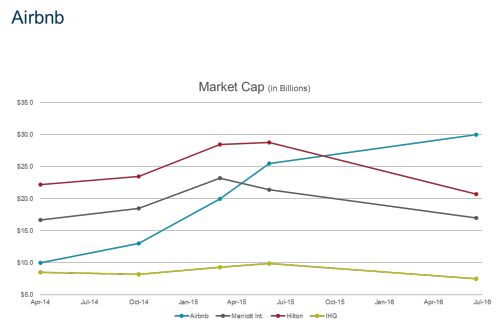Cornell University’s Baker Program in Real Estate was pleased to host Rick Latella and Eric Lewis of Cushman & Wakefield for its weekly Distinguished Speaker Series on Thursday, November 3rd. Rick and Eric are both Executive Managing Directors and Global Practice Leaders within Cushman & Wakefield’s Valuation and Advisory Group, where Rick leads the retail valuation practice and Eric leads the hospitality and gaming division.
Eric Lewis’s depth of experience and tenure serving the hotel industry has exposed him to a great deal of changes in the industry. He shared that many large investors – institutional investors, sovereign wealth funds, and high net-worth individuals – continue to perceive America’s large gateway cities as safe bets for hospitality investment. Hotel valuations in these markets have largely remained stable throughout periods of economic discourse. Eric also spoke to the disruptive force of the sharing economy.

His visit to the Baker Program came at an opportune time, as New York Governor Andrew Cuomo has introduced new legislation just days before that prevents hosts in New York from renting their entire apartment for less than 30 days. Though the results of this new legislation will remain to be seen, Eric shared that he was convinced that disruptors such as Airbnb are a new reality in the industry, and that it’s unlikely that they will simply be legislated away.
In his presentation, Eric spoke to the graph below, showing that the estimated value of Airbnb is larger than that of the market cap of large hotel giants Marriott Int., Hilton, and IHG. The growth in Airbnb’s perceived value (as it is not publicly traded) is seemingly correlated to the decreasing value of these large hotel companies, implying that Airbnb has been successful convincing the market that they are a legitimate hospitality contender.
Rick Latella also spoke to the changes taking place in the market through his personal experience in Cushman & Wakefield projects, in particular as they relate to the retail sector. Rick highlighted the shift from brick and mortar retailing to e-commerce as well as the decline of several department store chains that anchor regional and super-regional shopping centers. These trends have resulted in the need for retail landlords to create an experience to draw customers. The Mall of America has continued to transition into a more entertainment-oriented property since its 1992 grand opening. In 2016, the mall opened FlyOver America, a flight simulation that takes customers on an aerial tour of the United States through virtual flight technology.

Rick additionally highlighted the American Dream Meadowlands project in East Rutherford, New Jersey, one of the most significant development projects in the United States at a proposed 4.8 million square feet and over 500 stores. The developer plans to include an indoor ski dome, a theme park anchored by Nickelodeon, and a significant restaurant presence, and previously had plans to include the largest Ferris wheel in the nation (those plans were halted due to airport restrictions). Rather than relying upon traditional mall anchor tenants to draw customers, developers and landlords are clearly shifting to an entertainment and experience-based model to lure consumers and bolster retail sales volumes and occupancy.
